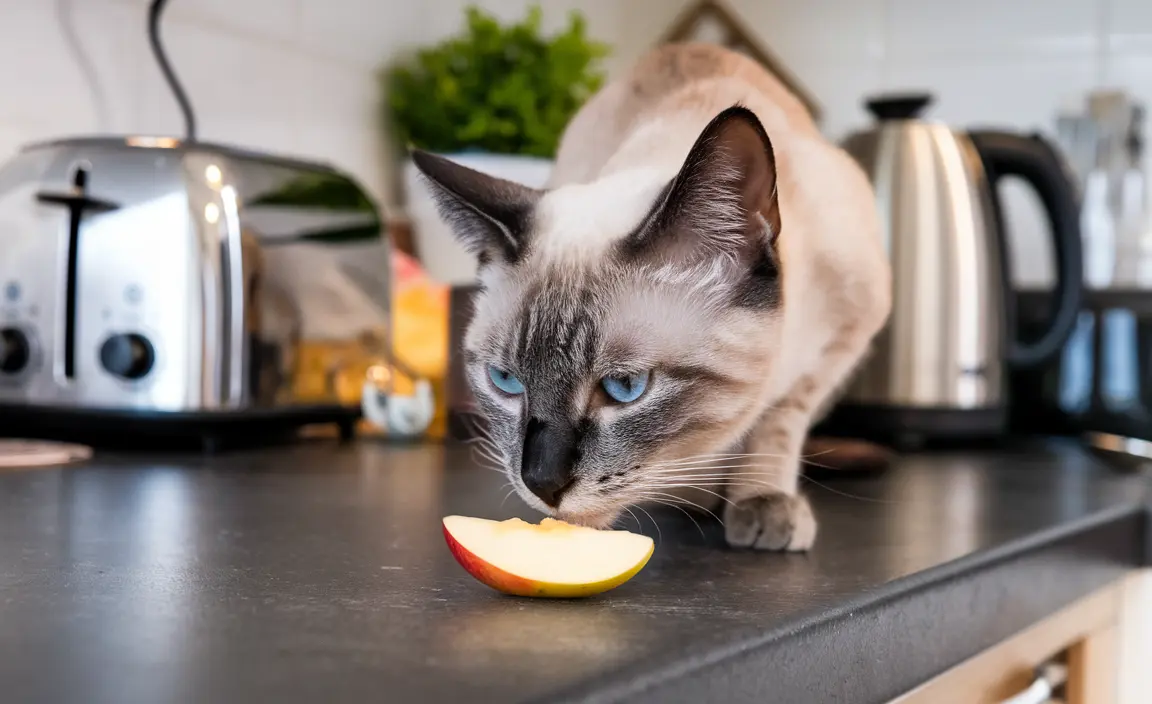Can Cats Have Apples? Understanding the Basics
Cats are obligate carnivores, which means their diet primarily consists of meat. While apples aren't toxic to cats in small amounts, they shouldn't be a regular part of their diet. Most cats lack the taste receptors for sweetness, so they're typically not attracted to fruity treats like apples.
Nutritional Considerations for Cats
Although apple flesh contains some beneficial nutrients like vitamins A, C, and K, cats have very limited ability to process plant-based foods. Their digestive systems are designed to extract nutrients from animal proteins, making fruits like apples more of a novelty than a nutritional powerhouse for felines.
Potential Benefits and Risks of Apples for Cats
The Good: Minimal Nutritional Advantages
Apples do offer a small amount of fiber, which can potentially aid in digestion. However, the benefits are minimal, and there are much better ways to support your cat's digestive health through their regular diet.
The Dangerous: Toxic Components to Avoid
Here's where cat owners must exercise extreme caution. Apple seeds, stems, and leaves contain cyanide, a toxic substance that can cause serious health issues in cats. Symptoms of cyanide poisoning include rapid breathing, drooling, and vomiting. Always remove these parts completely before even considering offering any apple to your cat.
Safe Apple Consumption Guidelines
Preparing Apples for Cats
If you decide to offer your cat a tiny piece of apple, follow these strict guidelines:
- Remove all seeds, stems, and leaves completely
- Wash the apple thoroughly to remove pesticides
- Peel the skin to further reduce chemical exposure
- Cut into very small, bite-sized pieces
- Offer only as an occasional, tiny treat
- Monitor your cat for any signs of digestive upset
How Much is Too Much?
Experts recommend treating apples as an extremely rare treat. A small piece no larger than a fingernail, offered infrequently, is more than enough. Any more could cause gastrointestinal issues or nutritional imbalances.
Special Considerations for Apple Treats
Applesauce and Cooked Apples
Homemade, plain applesauce without added sugars might be safer, but it's still not recommended as a regular treat. Store-bought versions are typically loaded with sugars and preservatives that can harm your cat.
Frequently Asked Questions
Can cats eat apples safely, and what parts should be avoided?
Cats can eat small amounts of apple flesh, but must avoid seeds, stems, and leaves due to cyanide content.
How much apple can I safely give my cat as a treat?
Limit to a tiny piece no larger than a fingernail, offered very infrequently.
Are apple seeds, stems, or leaves poisonous to cats?
Yes, these parts contain cyanide and are extremely toxic to cats.
Can cats eat applesauce or cooked apples safely?
Homemade, plain applesauce might be okay in tiny amounts, but it's best to avoid it altogether.
Why don't most cats like apples, and is it safe to keep trying?
Cats lack sweet taste receptors and are carnivores, so they're naturally uninterested in fruits. It's best not to force foods outside their natural diet.
Remember, while apples aren't inherently dangerous in microscopic amounts, they offer no significant nutritional value to cats. Your feline friend is best served by a balanced, meat-based diet recommended by veterinary professionals.






